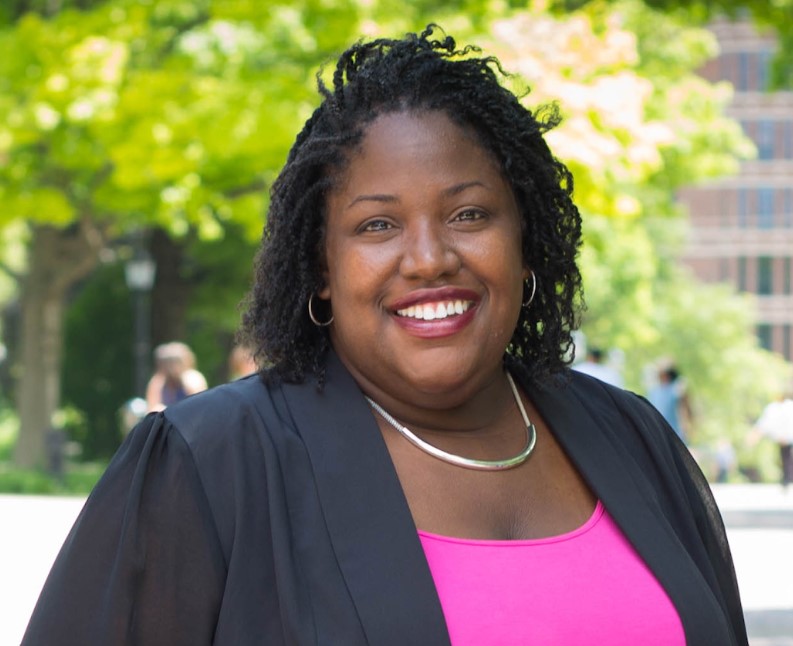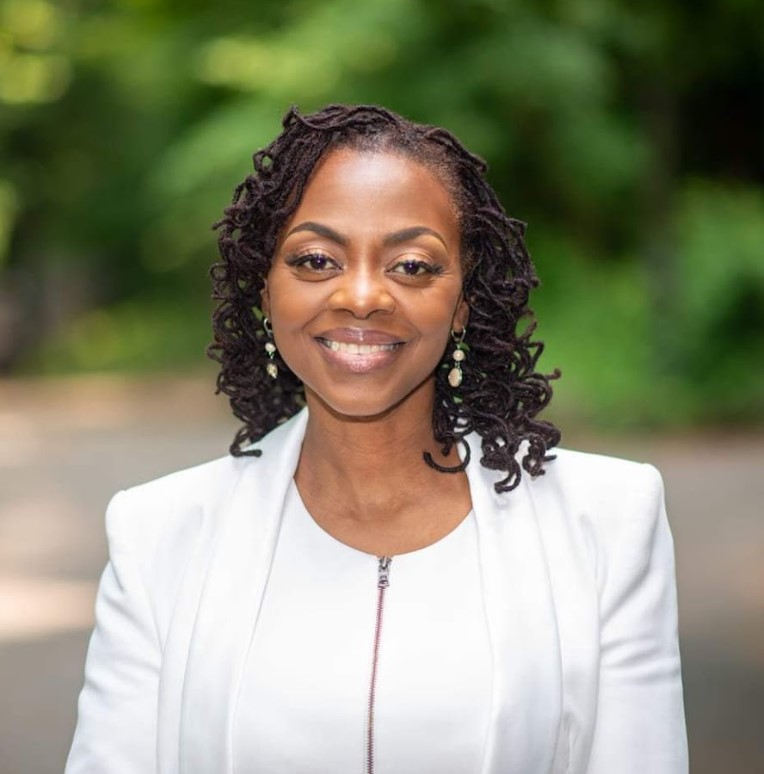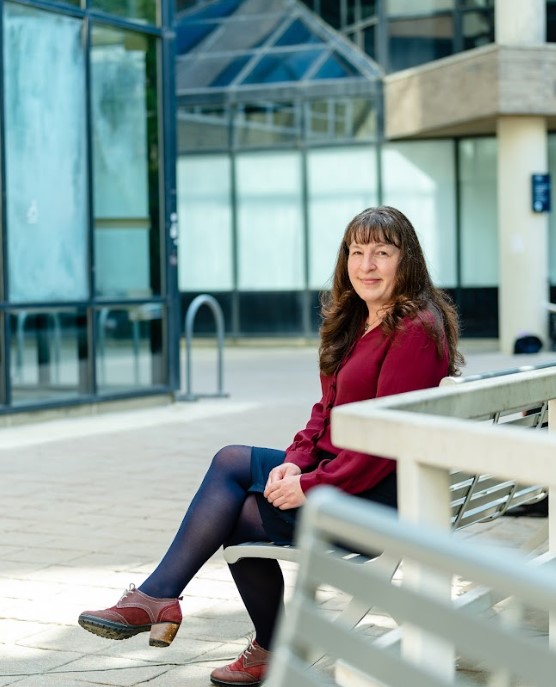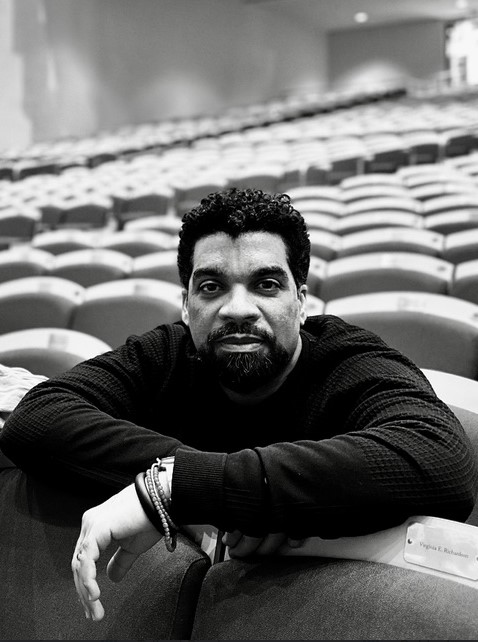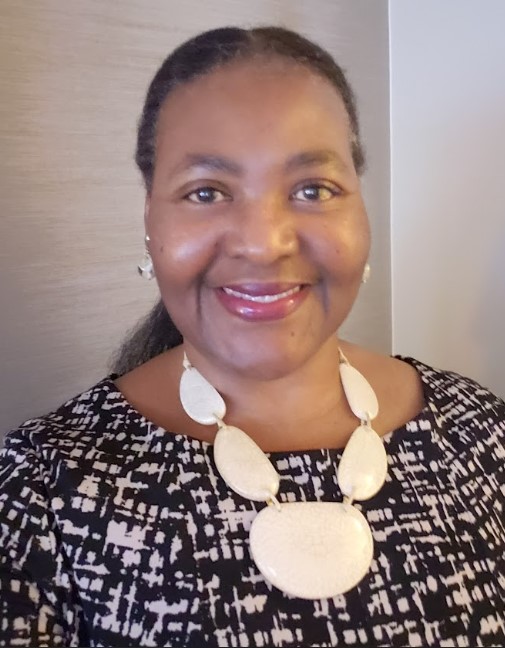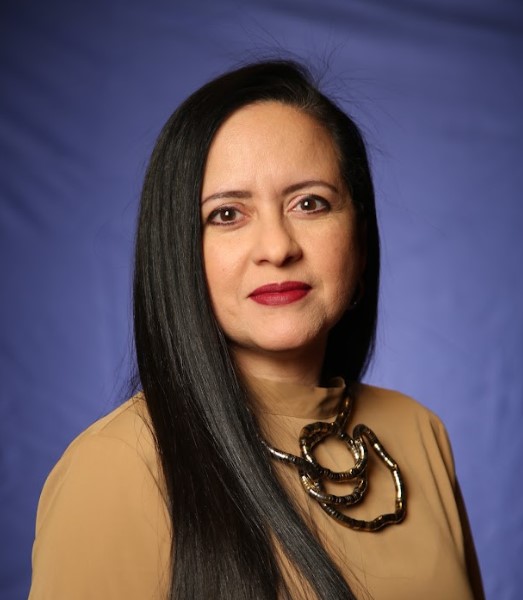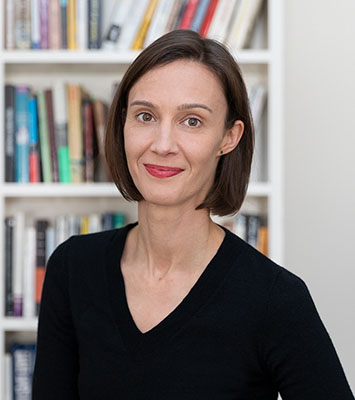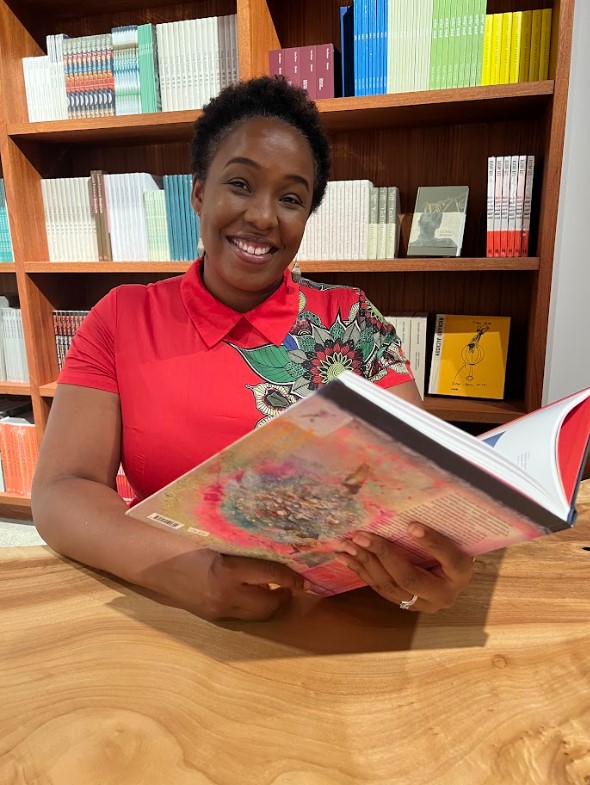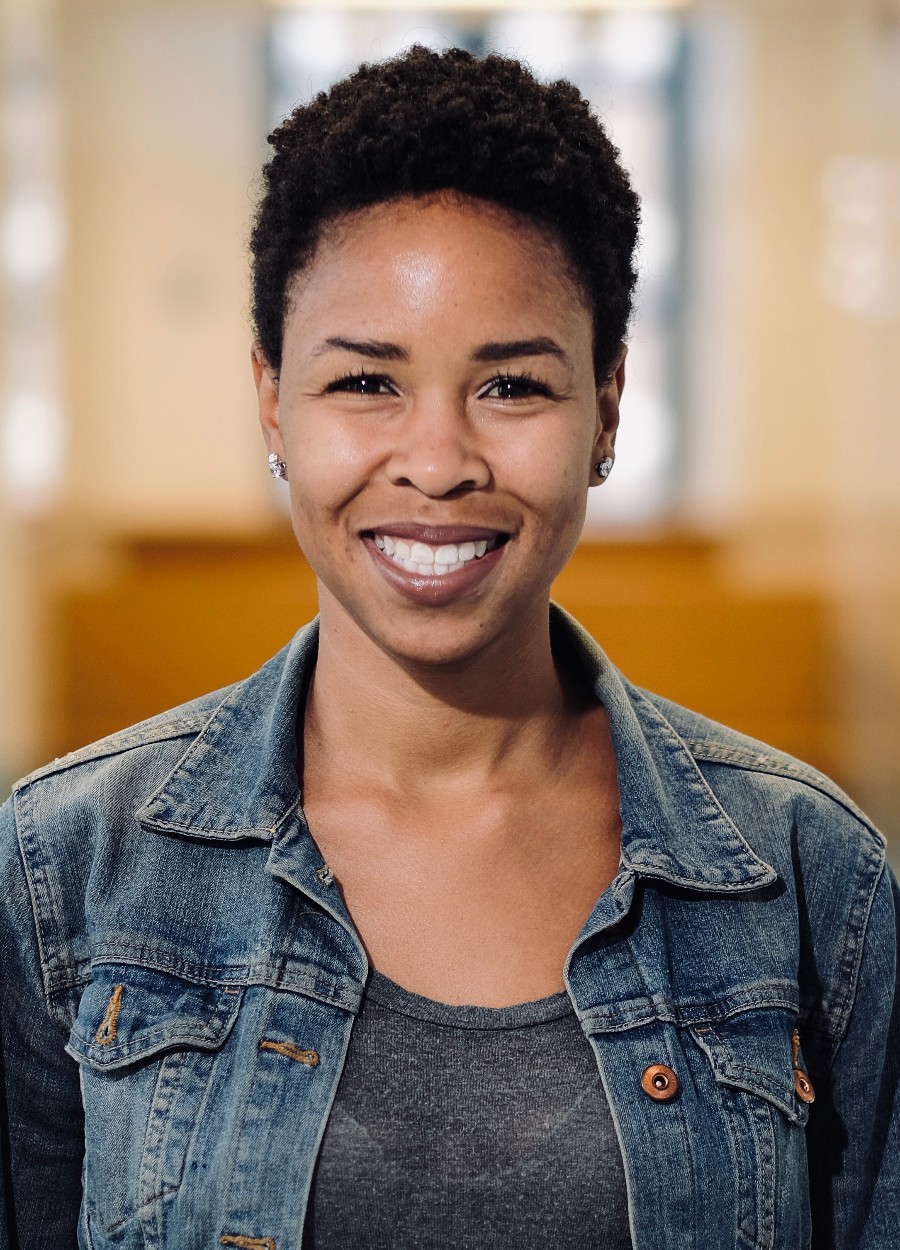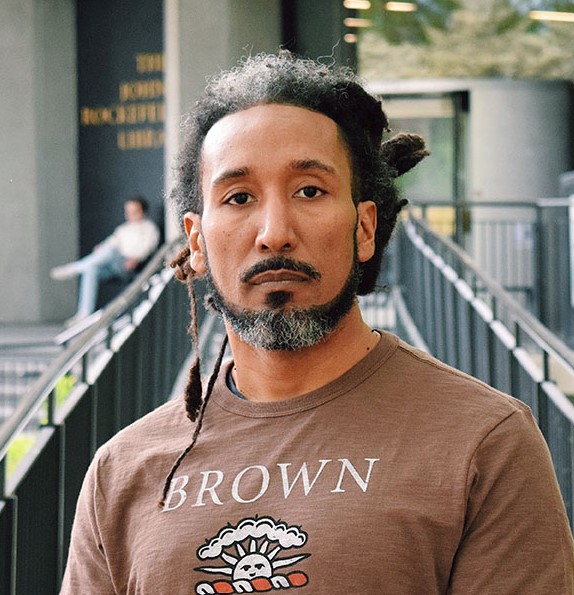Speakers
University of California, Irvine
Barry M. Goldenberg is a Lecturer in the Education Sciences and MAT + Credential programs in the School of Education at the University of California, Irvine, and has received multiple recognitions for his teaching. His forthcoming book, Strength Through Diversity: Harlem Prep and the Rise of Multiculturalism (Rutgers University Press, in press), explores the history of a ground-breaking community school in Central Harlem during the civil rights era. His research on racial equity in schools and community-based history instruction has been published in Urban Education, Multicultural Perspectives, Rethinking History, Voices From the Middle, and The Social Studies. His latest article will be published in The Journal of African American History in Spring 2024. He holds a B.A. in History from UCLA, and a M.A and Ph.D. in History and Education from Teachers College, Columbia University.
Director, Edmund W. Gordon Institute for Urban and Minority Education
Ezekiel Dixon-Román is Professor of Critical Race, Media, & Educational Studies and Director of the Edmund W. Gordon Institute for Urban and Minority Education. He is also co-founder and Director of the Institute in Critical Quantitative, Computational, & Mixed Methodologies and the Critical Computation Bureau. He joined the Teachers College faculty on January 1 2023 from the University of Pennsylvania School of Social Policy & Practice.
His research program makes critical interventions towards re-theorizing the technologies and practices of quantification that he understands as mediums and agencies of sociopolitical systems, whereby race and other assemblages of difference are byproducts. He is particularly interested in how power generates difference, especially in bodily capacities to change and be changed. His research question addresses how sociotechnical systems of quantification work on, with, and in the body to produce racialized demarcations, which decide which bodily capacities to regenerate and which to debilitate. Dixon-Román argues that, in the ‘computational turn’ of global neoliberal racial capitalism, the biopolitics of statistical demarcations of bodies forms and shapes the movement and flow of power and sociopolitical relations. As such, his research is invested in speculative questions of futurity that rethink technologies of quantification toward onto-epistemologies other-wise. He engages with philosophical and methodological interventions toward developing alternative modes of inquiry and practices of quantification that might enable critical space for reconstituting sociopolitical relations and the movement and flow of social life.
Dr. Dixon-Román is the author of Inheriting Possibility: Social Reproduction & Quantification in Education (2017, University of Minnesota Press). In this book project, he reconceptualizes quantification and theories of social reproduction in education from a cultural theoretical lens that posits culture is nature and the human is one of myriad expressions of Earth’s becoming. Inheriting Possibility received the 2018 Outstanding Book Award from the American Educational Research Association.
He also co-edited Thinking Comprehensively About Education: Spaces of Educative Possibility and Their Implications for Public Policy (2012, Routledge) and more recently Black Radical Love: A New Black Reconstruction through the Thought & Activism of Edmund W. Gordon (2023, Third World Press). In addition, he co-guest edited “Alternative Ontologies of Number: Rethinking the Quantitative in Computational Culture” (2016, Cultural Studies-Critical Methodologies), “The computational turn in education research: Critical and creative perspectives on the digital data deluge” (2017, Research in Education), “Control Societies @30: Technopolitical Forces and Ontologies of Difference” (2020, Social Text Online), and “Dialogues on Recursive Colonialism, Speculative Computation, and the Techno-Social” (2021, eflux journal). He is currently working on two book projects: (1) a co-edited collection, Recursive Colonialisms: Technology, Culture, Politics and (2) an authored book project, Haunting Algorithms: Algorithmic Governance and Logics of Colonialism, that examines the haunting formations of the transparent subject in algorithmic governance and the potential transformative technopolitical systems open to ontoepistemologies other-wise.
He is also a co-editor of the Duke University Press book series, “Anima: Critical Race Studies Otherwise”, and associate editor of the 2023 and 2025 volumes of the Review of Research in Education, one of the flagship journals for the American Educational Research Association.
He is co-founder and co-Director of the Institute in Critical Quantitative, Computational, & Mixed Methodologies as well as The Critical Computation Bureau.
Publications
Books
Dixon-Román, E., Lee, C.D., Madhubuti, H.R., Rice, D.W. (Eds.) 2023. Black Radical Love: A New Black Reconstruction through the Thought & Activism of Edmund W. Gordon. Chicago IL: Third World Press.
Dixon-Román, E. 2017. Inheriting Possibility: Social Reproduction and Quantification in Education. Minneapolis MN: University of Minnesota Press.
Dixon-Román, E. & Gordon, E. W. (Eds.) 2012. Thinking Comprehensively About Education: Spaces of Educative Possibility and Their Implications for Public Policy. New York NY: Routledge.
Select Journal Articles
Nichols, T. P., & Dixon-Román, E. (Accepted). “Platform governance and education policy: Power and politics in emerging edtech ecologies.” Educational Evaluation & Policy Analysis.
Dixon-Román, E. with Arlene Fernandez, Julian Quiros, & Nicole Sansone. 2022. Diffracting Boundaries: Toward Post-Philosophies of Quantification and the Black Radical Tradition. Qualitative Inquiry (For a Special Issue on “Post-Philosophies”).
Dixon-Román, E. with Ramon Amaro. 2021. “Haunting, Blackness, & Algorithmic Thought.” e-flux journal 123: 1-11. (special issue on “Dialogues on Recursive Colonialism, Speculative Computation, and the Techno-Social.”) https://www.e-flux.com/journal/123/437244/haunting-blackness-and-algorithmic-thought/
Dixon-Román, E. with Jasbir Puar. 2021. “Mass Debilitation & Algorithmic Governance.” e-flux journal 123: 1-11. (special issue on “Dialogues on Recursive Colonialism, Speculative Computation, and the Techno-Social.”) https://www.e-flux.com/journal/123/436945/mass-debilitation-and-algorithmic-governance/
Jocson, K. & Dixon-Román, E. 2021. Becoming Shuri: CTE, Racializing Affect, and the Becoming-Technologist. Reading Research Quarterly 56(2): 257-271.
Parisi, L. & Dixon-Román, E. 2020. Recursive Colonialism & Cosmo-Computation. Social Text Online.
Dixon-Román, E. 2020. A Haunting Logic of Psychometrics: Toward the Speculative and Indeterminacy of Blackness in Measurement. Educational Measurement: Issues and Practice 39(3): 94-96.
Dixon-Román, E., Phil Nichols, & Ama Nyame-Mensah. 2020. The Racializing Forces of/in AI Educational Technologies. Learning, Media & Technology 45(3): 236-250. (Special Issue on “AI and Education: critical perspectives and alternative futures”)
Dixon-Román, E., Nyame-Mensah, Ama, and Russell, Allison. 2019. Algorithmic Legal Reasoning as Racializing Assemblages. Computational Culture: A Journal of Software Studies 7: 1-41. http://computationalculture.net/algorithmic-legal-reasoning-as-racializing-assemblages/.
Leonardo, Z., and Dixon-Román, E. 2018. Post-Colorblindness; Or, Racialized Speech after Symbolic Racism. Educational Philosophy and Theory 50(14): 1386.
Dixon-Román, E. 2017. Regenerative Capacities: New Materialisms, Inheritance, and Biopolitical Technologies in Education Policy. Equity & Excellence in Education 50(4): 434-445.
Dixon-Román, E. 2017. Toward A Hauntology on Data: On The Sociopolitical Forces of Data Assemblages.Research in Education 98(1): 44-58.
de Freitas, E., and Dixon-Román, E. 2017. The computational turn in education research: Critical and creative perspectives on the digital data deluge. Research in Education 98(1): 3-13.
Dixon-Román, E. 2016. Diffractive Possibilities: Cultural Studies and Quantification. Transforming Anthropology24(2):157-167.
de Freitas, E., Dixon-Román, E., and Lather, P. (listed alphabetically) 2016. Alternative Ontologies of Number: Rethinking the Quantitative in Computational Culture. Cultural Studies-Critical Methodologies 16(5): 431-434.
Dixon-Román, E. 2016. Algo-Ritmo: More-Than-Human Performative Acts and the Racializing Assemblages of Algorithmic Architectures. Cultural Studies-Critical Methodologies 16(5):482-490.
Select Book Chapters
Dixon-Román, E. (In Press) “Algorithmic Governance & Racializaing Affect.” in Affect Theory Reader 2: Worlding, Tensions, Futures. Gregory Seigworth & Carolyn Pedwell (eds.). Durham, NC: Duke University Press.
Dixon-Román, E. 2023. “Exteriority, Black Noise & the Computational Accident.” In J. Brouwer & S. V. Tuinen (Eds.), technological accidents, accidental technologies. Rotterdam NL: V2_PUBLISHING.
Madaio, Michael, Mayfield, Elijah, Blodgett, Su Lin, & Dixon-Román, Ezekiel. 2023. “ Beyond “Fairness:” Structural (In)Justice Lenses on AI for Education" In Wayne Holmes and Kaśka Porayska-Pomsta (Eds.), The Ethics of AI in Education: Data, algorithms, equity and biases, in educational contexts.
Parisi, L., & Dixon-Román, E. 2020. Data capitalism, sociogenic prediction and recursive indeterminacies. In P. Mörtenböck and H. Mooshammer (Eds.), Data Publics: Public Plurality in an Era of Data Determinacy. (pp. 48-62). New York, NY: Routledge.
Dixon-Román, E., Jackson, John L., & McKinney de Royston, M. 2020. Deconstructing the Quantitative-Qualitative Divide: Toward A New Empiricism. In Handbook of the Cultural Foundations of Learning. Na’ilah Nasir, Carol D. Lee, Roy Pea, and Maxine McKinney de Royston (Eds.). New York, NY: Routledge.
Assessment for Good
Temple S. Lovelace is the Founder and Executive Director of Assessment for Good. Assessment for Good, an inclusive R&D program supported by Advanced Education Research and Development Fund, grew out of a commitment to transform the role of assessment so that it is identity affirming and honors the continuum of a learner's development. Temple’s research focuses on the intersection of disability, race, and gender, with a specific focus on pathways of opportunity for Black Neurodivergent girls. During her tenure in Pittsburgh, PA, she launched three successful university-community YPAR collaboratives, Youth Leading Change, Education Uncontained, and Girlhood Rising, which resulted in emancipatory R+D, a framework for agentic, transformative change.
Teachers College, Columbia University
Yolanda Sealey-Ruiz, a graduate of NYU and Columbia Universities, is a Professor of English Education at Teachers College, Columbia University. Yolanda is a sought-after speaker on educational equity issues, author of numerous academic articles, co-editor of four books, and co-author of the multiple award-winning book Advancing Racial Literacies in Teacher Education: Activism for Equity in Digital Spaces where she examines her concept of Archeology of Self™ in education. At Teachers College, she is founder of the Racial Literacy Roundtables Series where for 15 years, national scholars, teachers, and students facilitate conversations around race and other issues involving diversity. Yolanda has appeared in several documentaries including Spike Lee’s “2 Fists Up: We Gon’ Be Alright” (2016), a documentary about the Black Lives Matter movement and the campus protests at Mizzou. Her first full-length collection of poetry, Love from the Vortex & Other Poems, was published in March 2020. Her sophomore book of poetry, The Peace Chronicles, was published in July, 2021. Showcasing the interdisciplinary nature of her work, Yolanda's poetry books have gained recognition and been embraced by jazz and avant-garde classical musicians. Beyond her artistic pursuits, Dr. Sealey-Ruiz's Archeology of Self™ theory and practice concept has been presented to thousands of educators and educational leaders within the United States and abroad.
Lecturer, Curriculum and Teaching Department
Teachers College, Columbia University
Dr. Rachel Talbert, Teachers College Columbia University is a lecturer in the Curriculum and Teaching department and Research Fellow at TC’s Edmund W. Gordon Institute for Urban and Minority Education. Her teaching and research center survivance (Vizenor, 2008) an active sense of Native presence over
absence and supporting Indigenous students through curriculum with particular attention to students in city public school spaces. She is committed to a curriculum that supports all students learning about American Indian sovereignty and self determination. Her research seeks to understand the impact of
PreK-12 curriculum centering sovereignty and survivance to better understand how such a curriculum supports teachers in public schools. Her research with urban Indigenous youth in public schools focuses on civic identity negotiation and its relationship to Tribal sovereignty and self-determination.
Morehouse College
David Wall Rice is Professor of Psychology at Morehouse College, with a program of study that places emphasis on identity and personality. The primary vehicle for this work is the Identity, Art and Democracy Lab, a research space where Rice et al. examine identity through life stories and an asset-based lens.
Rice graduated from Morehouse with a Bachelor of Arts degree in Psychology, earned a doctorate in personality psychology from Howard University and did post-doctoral research at Teachers College, Columbia University’s Institute for Urban and Minority Education.
With a master’s degree in journalism from Columbia University, Rice frequently applies his research to cultural criticism.
His edited volume, Identity Orchestration: Black Lives, Balance and the Psychology of Self Stories (2022) — a follow-up to Balance: Advancing Identity Theory by Engaging the Black Male Adolescent (2008) — is an effective representation of Rice, the Identity, Art and Democracy research Lab and the work they engage.
Felicia Moore Mensah is the Department Chair of Mathematics, Science, and Technology and Professor of Science Education at Teachers College, Columbia University (New York City). She was an Associate Dean at Teachers College. She worked closely with the Office of Student Affairs, the Office of Community and Diversity, and the Provost Office in doing faculty development and promoting student academic development. She is currently the faculty advisor for the Black Student Network, past advisor to the Doctoral Research Collective on Race & Ethnicity, and former moderator and host of the monthly CITED Conversations, which stands for Critical Conversations in Teacher Education and Development. This platform promotes scholars of Color doing innovative research across diverse fields in teacher education and professional development. In Dr. Mensah's current work, she utilizes critical race theory, racial literacy, and intersectionality to transform teacher education research and practice. Her focus on preparing future teacher educators and teacher educators of color for racial literacy combines years of teaching, mentoring, and outreach in PreK12 schools, postsecondary education, and teacher professional development.
Dr. Mensah is the recipient of the 2024 Mentor Award (ASTE); the 2017 Outstanding Science Teacher Educator of the Year (ASTE); the 2012 Early Career Award, Division K Teaching and Teacher Education (AERA); and an Equity and Ethics Scholar in 2005 (NARST). She is the author of "Like Words Falling onto the Page: Demystifying the Academic Writing and Publishing Process” and “The Baby Qual Podcast”, which both support academic writers.
Dr. Mensah is a Past President of Sisters of the Academy Institute, or SOTA, an organization supporting Black women's success in higher education. Among other activities, she is co-editor of the Journal of Research in Science Teaching (JRST), a Lead Editor of Cultural Studies of Science Education, and an associate editor of Learners of the African Diaspora Journal (LADJ).
Before her life in academia, Dr. Mensah was a former high school science teacher; and before teaching she worked as a laboratory scientist in a large regional hospital and big multinational consumer goods corporation in North Carolina, her home state.
Senior Associate Director of the Edmund W. Gordon Institute for Urban and Minority Education
Teachers College, Columbia University
Dr. Sonali Rajan is an Associate Professor in the Department of Health Studies & Applied Educational Psychology at Teachers College, Columbia University. She also holds a secondary faculty appointment in the Department of Epidemiology at the Mailman School of Public Health. She is currently the Senior Associate Director of the Edmund W. Gordon Institute for Urban and Minority Education. And she is currently the Inaugural President of the Research Society for Firearm-Related Harms. Dr. Rajan is a school violence prevention researcher, studying gun violence, school safety, and adverse childhood experiences. She is co-leading research in these areas funded by the National Institutes of Health and the Centers for Disease Control and Prevention. Her work prioritizes the needs for schools and communities to collectively attend to the well-being of children, while keeping them safe, reducing their exposure to violence, and ensuring opportunities for them to thrive.
Teachers College, Columbia University
As an associate professor in the Department of Arts and Humanities at Teachers College, Limarys Caraballo teaches doctoral and masters courses and seminars in the English education. She has a secondary appointment in the Department of Curriculum and Teaching, and serves as a faculty affiliate of the Institute for Urban and Minority Education. She is a member of the Doctoral Faculty Consortium at the CUNY Graduate Center and founding co-director of Cyphers for Justice, a youth and educator development program grounded in the principles of Youth Participatory Action Research (YPAR) and multiple culturally sustaining literacies. Her research interests include the construction and negotiation of multiple identities and literacies, critical epistemologies and curriculum theory, and the interrelatedness of practice theories, pedagogical practice, and disciplinary knowledge in curriculum and teaching.
Co-Director, Center on History and Education
Teachers College, Columbia University
Ansley T. Erickson is a U.S. historian who focuses on how racism and capitalism shape schooling in US cities, and how communities fight for educational equality. Her first book, Making the Unequal Metropolis: School Desegregation and Its Limits, won the History of Education Society’s Outstanding Book Award in 2017. She is co-editor of Educating Harlem: A Century of Schooling and Resistance in a Black Community. Erickson also co-directs the Teachers College Center on History and Education, which works with scholars, educators, and community members to generate new knowledge about teaching and learning in the past and explore their implications for the present, with a primary focus on the history of education in New York City. Erickson will be a Visiting Scholar at the Russell Sage Foundation for the 2024-25 academic year.
Teachers College, Columbia University
Dr Davinia Gregory-Kameka is Assistant Professor of Arts Administration at Teachers College.
Gregory-Kameka’s work focuses on the role of arts organizations within their policy & funding landscapes in sustaining or disrupting racial capitalism. Her doctoral work was the first piece of research to fully document the closure, aftermath and legacy creation of a Black-led arts organization; the first empirical analysis of what happens at this point of stress. Analysis of what happens when an organization implodes, bridges the gap between what policy calls “cultural diversity in the arts” and what happens (and is needed) on the ground. It asks, what is the importance of Black space in the arts, and how best can we protect it? Building on this work, Davinia recently completed an SSRC Postdoctoral Fellowship with BlackStar Projects in Philadelphia. Her art learning research consultancy for Hauser & Wirth New York funds a biennial artists residency at Teachers College, the Race & The Arts Residency, and the Final Project Award for students on her signature course at Teachers College, Race & The Arts: The Role of the Arts in Racial Capitalism.
Raising Educational Achievement Coalition of Harlem (REACH)
Teachers College, Columbia University
Jamila Gerald is the Director of Raising Educational Achievement Coalition of Harlem (REACH), an initiative under the Edmund W. Gordon Institute for Urban and Minority Education (IUME) that provides wrap-around services and support to schools in Harlem. She is an educational leader who excels in creating transformative educational experiences that are inclusive, creative, and progressively rigorous. Jamila embraces and values human differences as constituting a richness in our societies to be reflected and celebrated in our classrooms. She also believes in affirming the right of every young person to equal opportunities for active participation in an education that addresses her or his capacities and needs in a community wherein respect for all is cultivated with intention and care. When she is not running, Jamila enjoys running all over the world! She currently has completed three marathons in Berlin, Chicago, and New York City. She will be completing her fourth marathon in London in spring 2024.
Brown University
C. Malik Boykin received his doctorate in Social and Personality Psychology from UC Berkeley, his M.A. in Social-Organizational Psychology from Teachers College, Columbia University, and his B.S. in Psychology from the University of Maryland University College (UMUC) – after first attending Howard University. He was a Presidential Postdoctoral Fellow for two years at Brown in the Department of Cognitive, Linguistic, and Psychological Sciences before his current faculty appointment. His research focuses on intergroup relations, hierarchy, prejudice, mentorship, and racial identity. He has affiliate appointments with both the Center for the Study of Race and Ethnicity in America (CSREA) and the Data Science Initiative (DSI). He has previously secured funding from the Ford Fellowship Foundation, the Greater Good Science Center, and the Society for Multivariate Experimental Psychology to conduct his research. Dr. Boykin is a member of the Society for Personality and Social Psychology (SPSP), the Society for Industrial and Organizational Psychology (SIOP), and the Omega Psi Phi Fraternity Inc.


